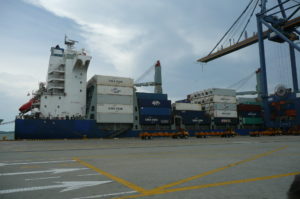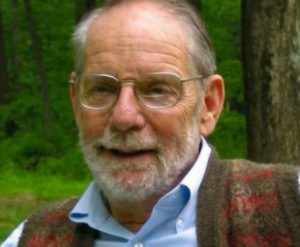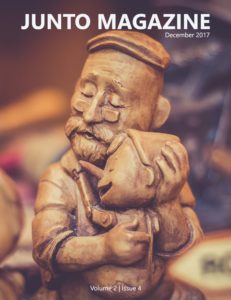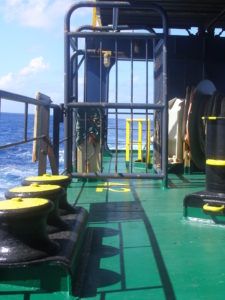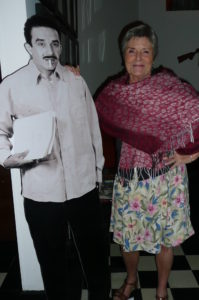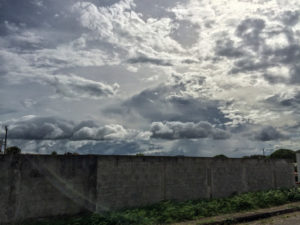Excerpted from Journey to the Joie de Vivre.
A journey without suspense would be boring. Here in Panama the suspense is when my ship comes in (ha!) and when she departs, both of which facts are still unknown. All I know now, having talked to the Port Agent this afternoon, is that the Matisse arrives sometime tomorrow night and departs in the wee hours of the following morning. At the Manzanillo International Terminal, it only takes 8 to 12 hours to unload and load 2500 containers. Having been through this before, I have learned to be patient. And even though checkout time is 1:00 PM, I’m sure the hotel will have no difficulty charging me for an additional night, no matter what time I leave. This little suspense is completely expected. (Memories of sitting uncomfortably surrounded by my luggage in the Washington Hotel lobby for three hours waiting for the time allotted to take me to the port. The charm of the old Washington disappeared completely when I learned in Tahiti – too late for me to do anything about it – that they had charged an additional night anyway.)
The unexpected suspense this time is due to my leaving behind all my cash and jewelry in the almost invisible safe in the dark closet of my hotel room in San José, Costa Rica. As soon as I opened the closet here in Panama and saw the open security box – much more accessible here than there – I thought, “Oh my God, my stupidity has reached alarming new heights.” Fortunately, I was able to call the hotel in San José and finally, after several hours of calls back and forth with a very kind guy named Daniel, it turns out he can send the money by Western Union and that the jewelry will be sent by DHL or FedEx before I depart.
This is one more cost, along with my emergency dental work and the new watch that I had to buy at the airport to replace the one I lost, that has unexpectedly reduced my travel fund. I am realizing that the unexpected is more compelling when you’re over 65. That’s the lesson for today.
It is worth recording the heroic efforts on the part of Daniel Cubero of the Hampton Inn in San José to return my things to me. First, on company time, he deposited my US$400 with Western Union, which was when he discovered that they would not accept euros (I had stocked myself with those too). So this morning, on his own time, he went to the Central Bank and changed the euros into US dollars and returned to Western Union, where he made a second deposit, then called to tell me that that I could now retrieve them both in a Western Union office that he discovered very close to my hotel here in Panama. In addition, he had Federal Express pick up my jewelry this morning at seven o’clock, and urged them to make a priority delivery, since I am uncertain about my departure time, and he informed me that they will be delivering my things between three and five this afternoon. This is all from one country to another, and jaw-droppingly amazing, and I asked him what would be the cost of the Federal Express shipment, expecting to have to pay a great deal for it. He said, “No, no, no, it’s on the hotel.”
Several times I have expressed to him my groveling gratitude at everything he has been doing for me, and he has said “No, no, you are family. I have put myself in your shoes. I understand your position, and we always want to do absolutely everything we can to help.” I think this is not just Hampton Inn training on the part of Daniel. I think it is also the fact that he’s Costa Rican and a gentleman, and Costa Rican gentlemen treat older women with great kindness, understanding and affection.
The hotel in Panama had sent a taxi across the country to the airport to pick me up. He wasn’t there, as the attendant wheeled me out of Customs, but a quick cell phone call straightened things out. I had said, “But I can take any old cab,” and the attendant said, “Not here, you don’t.” Just then Alexander strode up, apologizing for his lateness. He was a dark lanky, man with a frizz of graying hair and the deadest eyes I had ever seen. I’m accustomed to the openness of Costa Ricans – they meet your gaze, they say hello to strangers on the street – so to meet those dead eyes was like a punch in the stomach. He was polite, certainly, helping me into the back seat of his taxi, but I sat there puzzling over what was so clearly distrust on his part, and the possible reasons for it.
It’s also the custom in Costa Rica to talk to taxi drivers – every encounter is an opportunity to relate to another human being – so I leaned forward and started to ask Alexander questions. He was from Colón, so I was able to ask him if conditions there had improved since my last stay there. This was all it took to get him going, and we passed the hour’s drive very pleasantly. When we got to the hotel, his eyes were still remote, but not as dead as they had been.
Over the next 30 hours or so, I needed a taxi twice to take me to Western Union and back (the first time I had lacked a comprobante number), and I always asked for Alexander, telling him about the fix I’d gotten myself into and listening to details about his family as we dragged our way through the insufferable traffic. And I asked for him again when it was time to take me to the port. His eyes had warmed up by then, and as he left me and my suitcase at the port gate, we shook hands. As it happened, the hotel didn’t charge me the extra day, and I wondered if Alexander had been chatting with the people at the desk about my difficulties so much that they had taken pity on me.
But, ah Panama! First impressions survive – the overwhelming humidity, oppressive clouds bearing down overhead, construction everywhere, a pristine concrete highway slicing through what was once some of the most forbidding jungle in the world, decaying tile in the bathroom, maddeningly slow service, creeping traffic and always, always the question of when I am going to leave.
©2016, Sandra Shaw Homer
